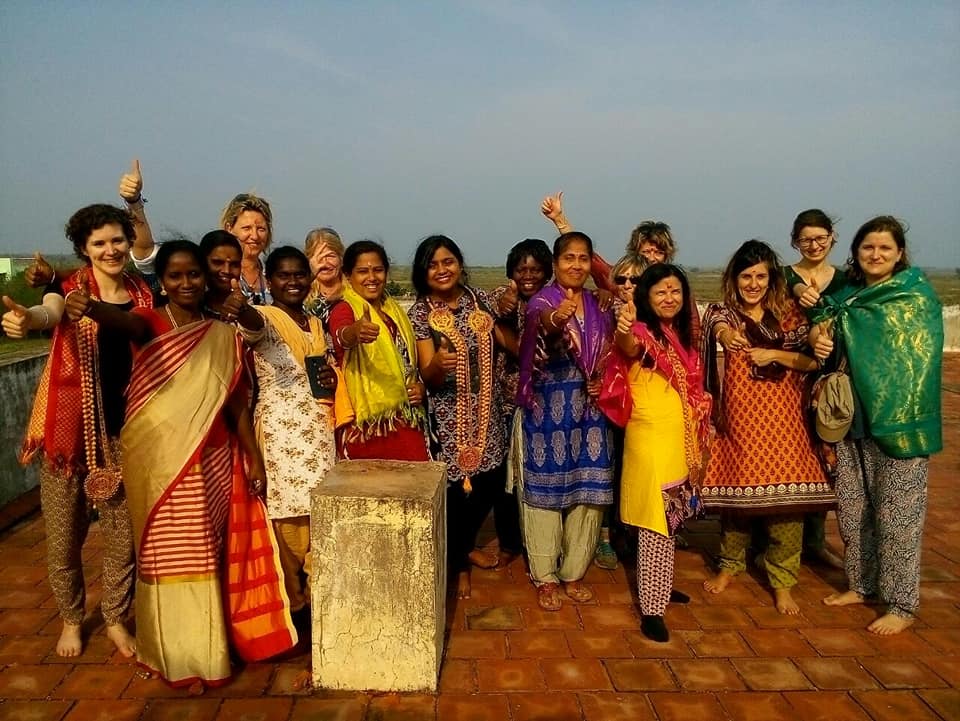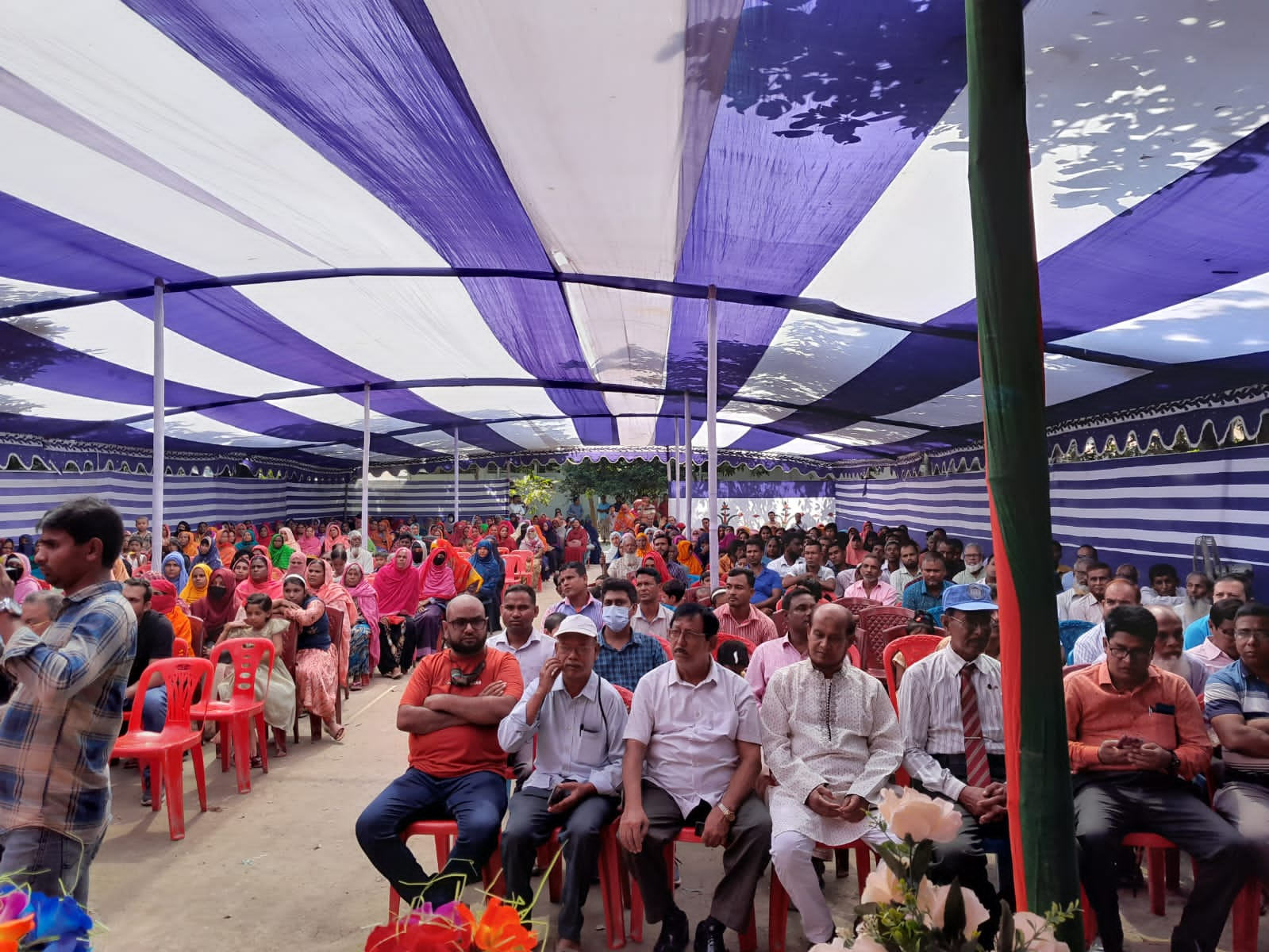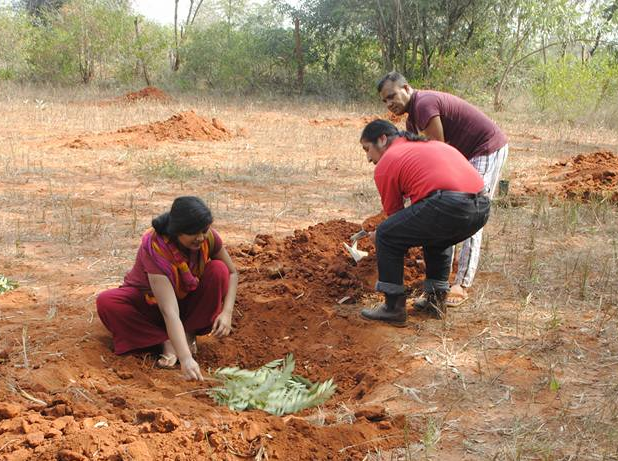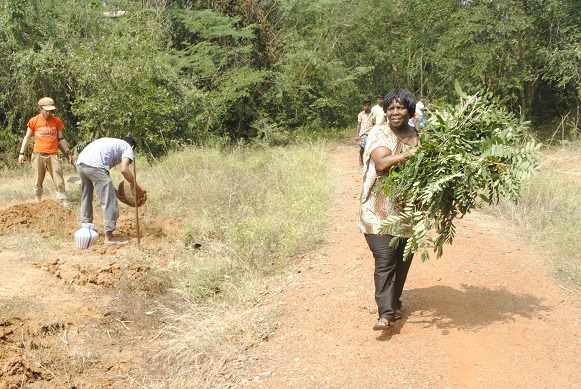Conclusions of the Emmaus Asia Work Camp

The Emmaus Work Camp in Asia, focused on social and environmental justice, has just come to an end. The 40 companions and volunteers set off on an adventure and worked hard for 10 days on an agro-ecology work camp. Each participant went back home feeling bolstered by the productive exchanges and lessons learnt.
These members of Emmaus International all came from different places – including Benin, Uruguay, Romania, Togo and Colombia – and they met in the south of India. The Emmaus Kudumbam group hosted them in order to share their fight for agro-ecology, hold constructive debates and for participants to give a hand on site.
Over ten structured days, discussions led to physical work. Participants got their hands dirty on the Kolunjii organic farm and sowed seeds, removed silt from ponds, planted vegetation in a sacred forest and learnt how to grow Azolla, a form of seaweed used in compost. In total, the work camp participants planted more than 700 trees.
This activity led to fruitful exchanges on agro-ecological practices and a joint discussion on food sovereignty and the right to land. Exchanges between the Emmaus groups were a key component of the work camp.
Participants spoke about environmental issues and were aware that the challenges and impacts that they all faced were similar and affected them all– whether they came from India, Peru or Benin. The fight for environmental justice is a common element of their reality.
What is more, the work camp allowed them not only to exchange agricultural practices but also inspire each other. The work camp motivated the participants to continue the fight for sustainable alternatives, not just at the local level but also at the international level.
The participants thus left the work camp with new ideas and alternatives in their minds that ensured that they continued their agro-ecological activities on a daily basis. Moreover, the work camp was a moment of collective involvement against the causes of poverty.
The participants therefore also worked on the topics of public health, access to water, child protection and the right to education. They went to meet farmers in order to promote organic farming, women’s cooperatives working on preserving traditional seeds, in addition to academics and activists for social and environmental justice.
Another key event of the work camp was when the participants took part in a protest against illegal mines and stone quarries in an effort to collectively denounce the extraction of wild resources, which affects the local population.
After the resounding success of the Asia work camp, Emmaus International plans to organise new work camps that take place in different continents and on the fights that unite the Emmaus groups. The goal of which is to support these exchanges and joint commitments.


